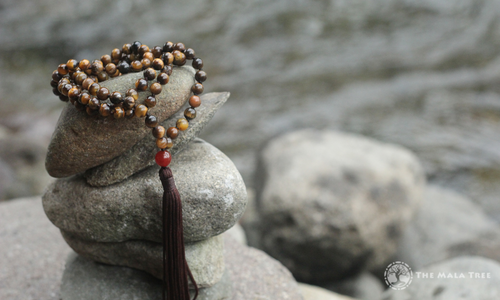
Meditation is a powerful tool for mental and emotional well-being. It helps us clear our minds, focus more on the present moment, and let go of the worries and distractions that keep us from living a fulfilling life. Mindfulness meditation, in particular, can help cultivate compassion and kindness toward ourselves and others. It is a technique that strengthens our ability to be present with our experiences and emotions without judgment, and this creates space for empathy and compassion.
In this blog post, we will explore how mindfulness meditation can help you cultivate compassion in your life, and provide you with useful tips and techniques you can start practicing today.
Understand the essence of mindfulness meditation for compassion
Mindfulness meditation is about staying present in the moment, shifting our focus from our buzzing thoughts to what is happening in the present. With this shift in our focus, we develop a deeper awareness of our surroundings and our own thoughts and emotions. This slow, gentle awareness creates a sense of spaciousness in our mind, helping us to be more open and receptive to ourselves and others.
Compassion, on the other hand, is all about making a genuine effort to care for others’ suffering and pain. You could say that mindfulness meditation is the foundation that supports compassion and that compassion itself arises when we become more mindful. By continuously practicing mindfulness meditation, we can put ourselves in a position where practicing compassion feels more organic, natural, and intuitive.
Start meditating with intention
One way of cultivating compassion through mindfulness meditation is by using it intentionally to cultivate feelings of warmth and caring towards others. You can do this by visualizing people you love or care about – friends, family members, and colleagues, or the people who come to mind when you think about causes or issues that matter to you.
During your meditation, maintain the visualization of these people or causes as clearly and vividly as possible, simulating an inner dialogue with them. Focus on the emotions that arise from spending time with them, the warmth you experience being in their company, and the appreciation and respect you have for them.
Allow yourself to be immersed in those emotions as you continue with your meditation. Feel yourself breathe deeper and notice how your attention begins to become more grounded and centered. You may also, on occasion, experience a few emotional discomforts as you sit with the emotions that arise from such deep contemplations, but you can continue to observe and accept them without indulging in them and get right back to the practice of your mindfulness meditation.
Practice Mindfulness of emotions
Another way of cultivating compassion is by becoming increasingly mindful of our own emotions and reactions. This can help to develop empathy and compassion towards others who also experience similar feelings. Try to take notice of your feelings and bodily sensations, observing them non-judgmentally, almost as you are a curious observer. This can help you identify when you are feeling uncomfortable, worried, upset, or hurt, which would only make compassion harder to practice without such self-insight.
Once you have labeled your emotions or sensations, shift your focus on your breath and bring yourself back to the present moment. By doing so, you begin to build an awareness of your sensitivity to your own and others’ feelings. This enables you not only to work on your mental well-being but also to provide support and care to those who are experiencing the same difficulties.
Keep practicing regularly
Practice is key to making progress in mindfulness meditation and developing compassion. Keep in mind that you do not need to wait for difficult situations to arise before practicing your meditation or mindfulness. Practicing on a regular schedule helps to keep your emotional level and reactions to real-life situations more grounded.
Set aside time to meditate every day, even just for a few minutes, to stay connected to your mindfulness practice and embed it into your daily routine effectively. Also, treat yourself gently and without judgment – remember that it is okay for your attention to wander during meditation and that returning to your breath or whatever anchor you are using in that moment, is an enabler of the practice and lets you build your ability gently over time.
Mindfulness meditation offers an opportunity to cultivate compassion, self-awareness, and non-judgment in our daily lives. Compassion and kindness arise from a steady and sustained mindfulness practice. By using techniques such as visualizations and mindfulness of emotions, and practicing regularly, you can develop the capacity for compassion, making a noteworthy shift towards peaceful self-discovery and cultivating the necessary inner-big-heartedness towards others. Remember to be kind and compassionate to yourself, as repeatedly practicing may take a while to bear fruit, but in the long term and with a guiding-mindful attitude, it is worth the effort to find this balance.
